THE PICASSO FILE: POLITICAL, MEDIA AND SOCIAL TENSION
DOI:
https://doi.org/10.51743/cih.240Keywords:
Spanish interventionism, Spanish Protectorate, Melilla 1921, Annual, Picasso File, general Silvestre, general Berenguer, general NavarroAbstract
The Picasso File was an investigation ordered by the Minister of War to determine military responsibilities, as a consequence of the events that occurred in the General Command of Melilla, between July and August 1921.
The circumstances surrounding the investigation led to the accelerated development of the process, under a great political, media and social pressure. After, the conclusions were sent to the military prosecutor of the Supreme Council of War and Navy and to Congress, in order to open the processes, military and political, determined by the research results.
At the end, only the military cadres were prosecuted, while the investigation of political responsibilities remained unfinished. As a consequence, the armed institution, and specifically the Commander General of Melilla, General Manuel Fernández Silvestre, remained for history as the only person responsible for the tragedy.
However, the result of the military prosecutor's analysis was very different from the conclusions contained in the File. Also, subsequently, new information has made it possible to review the work of the instructor and question their conclusions
Downloads
References
Balado, F. M. (2021). EL Expediente Picasso y las comisiones de responsabilidades. Ejército, nº 963.
Berenguer, D. (1923). Campañas del Rif y Yebala 1921-1922. Notas y documentos de mi diario de operaciones. Madrid: Sucesores de R. Velasco.
Berenguer D. (1948). Campañas del Rif y Yebala. Correspondencia y documentos oficiales para el estudio de nuestra acción militar y política. Notas de mi diario 1919-1921. Madrid: Ares.
Caballero Echevarría, F. (2016). Annual. Factores que confluyen en un desastre militar. Análisis del intervencionismo español en Marruecos (1898-1928). Tarifa: Imagenta.
Caballero García, F. (1932). Mis memorias. Madrid: Inédita.
Caballero Poveda, F. (1983). Marruecos, las Campañas del 21, cifras reales. Ejército, nº 522 y 523.
Comisión de Responsabilidades. Apéndice. Documentos relacionados con la información instruida por la llamada «Comisión de Responsabilidades» acerca del desastre de Annual. DSC, julio de 1923.
Dávila V. (1978). Una vida al servicio de España: General don Fidel Dávila Arrondo 1878-1962. Madrid: Talleres de prensa española.
De Eza, V. (1923). Mi responsabilidad en el desastre de Melilla. Madrid: Gráficas Reunidas.
De Romanones C. (1924). Las responsabilidades políticas del Antiguo Régimen de 1875 a 1923. Madrid: Renacimiento.
Franc, R. (2011). Gallieni à Madagascar et Lyautey au Maroc, deux oeuvres de pacification complémentaires. Cahier de la Recherche doctrinale. Núm. Junio.
Gájate, M. (2013). El desastre de Annual el pleito de las responsabilidades en la gran prensa (1921-1923). Revista Universitaria de Historia Militar, Vol. 2, núm. 3. Las guerras coloniales de España en la época contemporánea: en el centenario de la instauración del protectorado español. http://ruhm.es/index.php/RUHM/article/view/89
Galbán, M. (1965). España en África. La pacificación de Marruecos. Madrid: Servicio Geográfico del Ejército.
Gómez Hidalgo, F. (1921), La tragedia Prevista. Madrid: Renacimiento.
Guixé, J. (1922). El Rif en sombras. Madrid: Renacimiento.
Hart, M. y Raha Ahmed, R. (1999). La sociedad bereber del Rif marroquí. Sobre la teoría de la segmentariedad en el Magreb. Granada: Universidad de Granada.
Hernández Herrera, C. y García Figueras, T. (1929). La acción de España en Marruecos 1492-1927. Madrid: Imprenta Municipal.
Hoja de Servicios Dámaso Berenguer y Fusté. Archivo General Militar de Segovia (AGMS).
Hoja de Servicios Juan Picasso González. Archivo General Militar de Segovia (AGMS).
Hoja de Servicios Manuel Fernández Silvestre. Archivo General Militar de Segovia (AGMS)
Pando, J. (1991). Historía secreta de Annual. Madrid: Temas de hoy.
Prieto Tuero, I. (2001), Crónicas de guerra: Melilla 1921. Madrid: Algazara.
Recio García, M. A., (2018). El desastre de Annual en el Parlamento español: las Comisiones de Responsabilidades”. Revista Digital Guerra Colonial. Editado el 18 de mayo.
Resumen del Exmo. Sr. General de División D. Juan Picasso González referente al expediente instruido por él con motivo del abandono de posiciones en el territorio de Melilla los meses de julio y agosto. Madrid, 1922.
Raguer, H. (1994). El general Batet. Franco contra Batet: crónica de una venganza. Barcelona: Península Ediciones.
Sainz, S. (1924). Con el general Navarro en operaciones y en el cautiverio. Memorias del Capitán de Estado Mayor Sigfredo Sainz Gutierrez. Madrid: Suc. Rivadeneyra.
Seco Serrano, C. (2021). Alfonso XIII y la crisis de la Restauración. Madrid: Rialp.
https://socialismo-solucion.blogspot.com/2011/07/historia-de-la-iii-internacional.html
http://pares.mcu.es/ParesBusquedas20/catalogo/contiene/6831854
Downloads
Published
How to Cite
Issue
Section
License
The Fundación Universitaria Española publishing house preserves the patrimonial rights (copyright) of published works, and encourages and allows their reuse. The works are published in the electronic edition of the journal under a license “Creative Commons Atribución/Reconocimiento-NoComercial 4.0 Licencia Pública Internacional — CC BY-NC 4.0”, and can be copied, used, disseminated, transmitted and publicly exhibited, provided that : a) the authorship and original source of its publication is cited (journal, publisher and URL of the work); b) are not used for commercial purposes; c) the existence and specifications of this license of use are mentioned.
The author / s partially transfer the property rights (copyright) of this work to the Fundación Universitaria Española (Spain) (NIF: G28433670), for the printed and online editions.
It also declares to have respected the ethical principles of research and to be free from any conflict of interest.
«C.I.H.» encourages the authors and the scientific community to the maximum promotion and dissemination of the works in their final version through:
1) Your list of contacts (emails) and social networks (Facebook, Twitter, LinkedIn ...).
2) Institutional repository of your University and public repositories (Mendeley, Cosis ...).
3) Scientific social networks (ResearchGate, Academia.edu, Kudos ...).
4) Personal or institutional website, blog, etc.
5) Google Scholar, ORCID, ResearchID, ScopusID, Dimensions, PlumX ...
6) Printed copies purchased directly and sent to specialists for reading and subsequent citation if appropriate.
For the nomination of future articles by authors of "C.I.H.", the impact of previous works will be taken into account, so that those with citation higher than the annual average of the journal will be preferred.






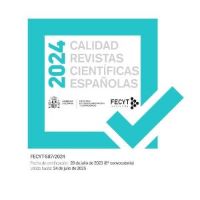




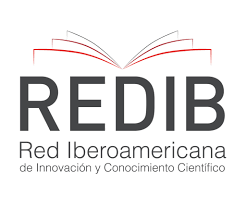
2.jpg)


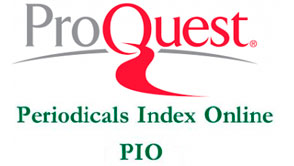
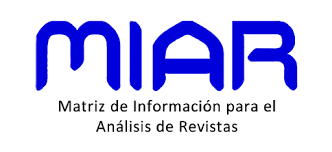








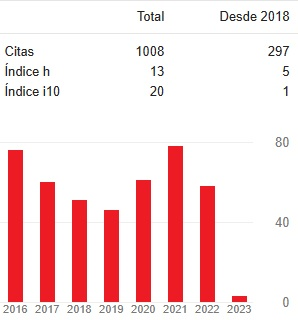



1.png)
1.png)

1.png)


.png)
.png)

.png)
1.png)
1.png)
